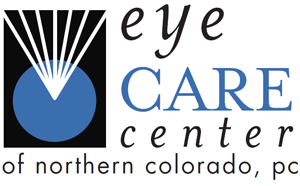Corneal Treatment
Whether you’re exploring laser refractive surgery to minimize reliance on glasses or contact lenses or dealing with any corneal condition, our compassionate treatment combined with the latest technology will help you achieve the best quality of vision.
Artificial Corneal Implantation
Cornea Transplants
- Fuch’s dystrophy
- Persistent corneal edema that my follow some cataract surgeries (pseudophakic bullous keratopathy or PBK)
- Corneal ulceration or infections including herpes simplex
- Corneal scars from previous infections or injuries
- Advanced keratoconus. Note that for many keratoconus patients, INTACS for keratoconus may be a better option
There are two main types of cornea transplants we perform.
Penetrating Keratoplasty (PKP):
PKP is traditional full-thickness corneal transplant
Descemet’s Stripping Endothelial Keratoplasty (DSEK) & Deep Anterior Lamellar Keratoplasty (DALKP):
DSEK and DALK are partial thickness “lamellar” transplants, both posterior and anterior. For patients who have Fuch’s dystrophy or bullous keratopathy a partial thickness, posterior surface transplant – DSEK – may be done. For patients with anterior scars from keratoconus or injuries, an anterior lamellar transplant – DALKP – might be best. Lamellar keratoplasties may require shorter recovery times and induce less irregular astigmatism.
We are also adept at managing existing corneal transplants, their evaluations, and medications.
Intacs
Intacs® corneal implants provide an option to improve vision and postpone a corneal transplant in most patients with keratoconus. When contacts and glasses can no longer provide adequate vision, Intacs may be a great solution.
Benefits of Intacs for Keratoconus
- Safe, replaceable, removable
- Decreases nearsightedness and astigmatism associated with keratoconus
- A more natural dome shape is restored to the cornea
- A few days of recovery compared to months for a corneal transplant
- May postpone the need for a corneal transplant
- A reversible alternative to LASIK for mild myopia
- May be used to augment previous laser vision correction
- May be paired with the Visian ICL to provide vision correction to people who are not LASIK candidates
LASIK & PRK
- Myopia (nearsightedness)
- Hyperopia (farsightedness)
- Astigmatism (blurry vision at all distances)
With LASIK, your eyes’ focusing power is restored, often eliminating the need for glasses and contacts.
More Info
Scar removal & Ocular Surface Reconstruction
Given the intimate relationship of the ocular surface with the lids and orbit, our treatment plans address all of the necessary surgical procedures needed for best patient care with ocular surface reconstruction. These include applications of amniotic membrane, limbal stem cell transplants, corneal gluing or conjunctival flaps for the ocular surface. Therapeutic blepharoplasty for entropion or ectropion, and lid lesion biopsies with repair as needed.
